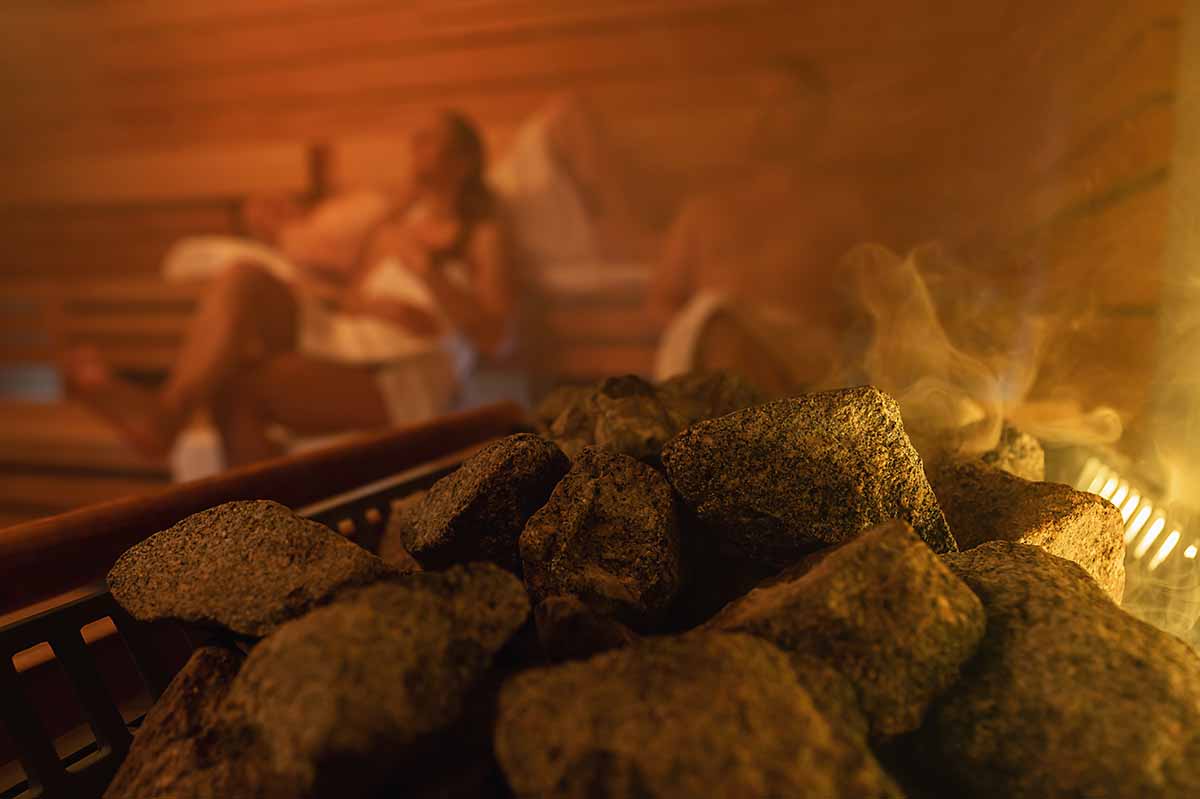
Researchers find saunas could help with post menopausal weight gain in women.
Here’s more interesting research supporting the health benefits of saunas and other heat treatments.
New research suggests that daily time in a warm environment like a sauna could help older adults, especially women, combat age-related obesity and insulin resistance. The study was designed to explore heat treatments as a simple way to promote healthier aging.
The study was conducted in mice, so the results might not be the same in humans, but they are promising nonetheless. Researchers found that older female mice who received a daily 30-minute whole-body heat treatment gained less weight and showed improved use of insulin, which helps control blood sugar, compared with mice who did not receive the heat treatments.
Saunas as a solution for managing weight gain
“Compared to men, women have a higher likelihood of being obese or overweight,” said research team leader Soonkyu Chung, PhD, associate professor in the Department of Nutrition at the University of Massachusetts Amherst, in a statement. “This is especially true after menopause, due to the loss of estrogen in the body. Our study suggests that whole-body heat therapy could serve as an effective, non-invasive solution for managing weight gain and insulin resistance associated with menopause.”
Heat therapy could be a practical option for those with increased abdominal fat and a higher risk of metabolic diseases triggered by menopausal hormonal changes, said Fan. And the treatments are something that can be easily integrated into routine healthcare practices through regular sessions in saunas, heated baths, or with specialized heat wraps.
For the study, the researchers remove the ovaries of the older female mice to model post-menopausal conditions. The mice received a Western diet that contained 45% calories from fat to induce weight gain. One group of mice received 30 minutes of daily heat therapy in a heat chamber set to 40℃ (104°F) for 12 weeks while the other group did not receive heat treatment.
“The mice receiving the heat treatment showed no tissue damage and exhibited significantly reduced lactate dehydrogenase levels, indicating less aging-related tissue damage. The therapy also effectively mitigated weight gain induced by a high fat diet.
“Compared to the mice not receiving the treatment, those that underwent heat therapy showed significant improvements in insulin sensitivity and insulin signaling as well as reduced fat accumulation in key areas such as the liver and in brown fat. While adipose tissue stores energy, brown fat is a metabolically active type of fat that helps the body burn more energy. Research has shown that people tend to lose brown fat as they age and when entering menopause, which contributes to a slower metabolism.”
The researchers found that the heat triggers several molecular processes that help the body use energy more efficiently and burn fat.
Fan said, “It could be particularly advantageous for individuals who find physical activities challenging, providing a relaxing way to improve metabolic health.”
The researchers note that more research is required to determine the optimal duration and intensity of heat exposure in people and to confirm safety and effectiveness across diverse populations.
Sauna as a treatment for depression
Previous studies have found regular sauna bathing shows promise as a prophylaxis against dementia and hypertension. And ongoing research is looking into sauna as a treatment for depression.
In a small trial of just 13 people, researchers recruited patients with major depressive disorder to assess the efficacy of a combined cognitive behavioral therapy (CBT) and whole-body hyperthermia (WBH) treatment. The The Osher Center for Integrated Health reports that Patients received eight weekly CBT sessions with a therapist, and separately completed a WBH session every other week, for a total of four, involving heating the body in an infrared sauna dome covering the entire body except for the head. The team found that the combined interventions led to statistically significant reductions in depression symptoms. And, of the 12 patients who completed treatments, 11 no longer met criteria for major depressive disorder post-treatment.
“After treatment, we observed reductions in depressive symptoms that were much higher than we would have expected from receiving CBT alone without heat treatment,” said Ashley Mason, PhD, the study’s lead author. “These results suggest that this mind and body treatment may hold promise in the treatment of depression. Patients found it feasible and acceptable, and data suggest that it had a meaningful impact on their depression.”
The research team is now conducting a second trial and preparing to conduct larger clinical trials.
Spa Executive is published by Book4Time, the leader in guest management, revenue and mobile solutions for the most exclusive spas, hotels, and resorts around the globe. Learn more at book4time.com.



